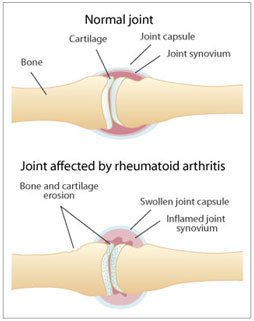|
|
||||||||||||||||||||||||||||||||||||
Disease Conditions
- Abscess
- Acne
- Addiction
- Adenoid Hypertrophy
- Allergic Rhinitis or Hay Fever
- Alopecia Areata
- Alzheimerís Disease
- Amoebiasis
- Anxiety
- Asthma
- Backache
- Bed-Wetting-Enuresis
- Brain-Tumour
- Cataract
- Cirrhosis of Liver
- Conjunctivitis
- Constipation
- Dengue
- Depression
- Diabetes Mellitus
- Diseases of Prostate
- Eczema
- Epilepsy
- Erectile-Dysfunction
- Gallstones
- Goitre
- Gynaec
- Hepatitis
- Hepatitis-a
- Hepatitis-b
- Hepatitis-e
- Hyperthyroidism
- Hypothyroidism
- IBS - Irritable Bowel Syndrome
- Infertility
- Infertility FAQ
- Male Infertility
- Male Infertility FAQ
- Women Infertility
- Lichen Planus
- Lipoma
- Meningitis
- Menstrual-Disorders
- Migraine
- Molluscum-Contagiosum
- Nasal-Polyps
- Neoplasm
- Nephrotic Syndrome
- Neuralgia
- Osteo Arthritis
- Otitis
- Piles or Hemorrhoids
- Premature-Ejaculation
- Psoriasis
- Rheumatoid Arthritis
- Ringworm
- Schizophrenia
- Sinusitis
- Spondylitis
- Styes
- Tarsal Cyst-Chalazion
- Tonsilitis
- Typhoid
- Urinary-Tract-Infection
- Urticaria
- Vertigo
- Vitiligo
- Warts
Auroh Health Horoscope
Disease A - Z > Rheumatoid Arthritis > Homeopathic treatment for Rheumatoid Arthritis
Homeopathy treatment for Rheumatoid Arthritis
|
||||||||
Rheumatoid Arthritis (RA) is an autoimmune disease that causes chronic inflammation of the joints. Rheumatoid arthritis can also cause inflammation of the tissue around the joints, as well as in other organs in the body. Autoimmune diseases are illnesses that occur when the body's tissues are mistakenly attacked by their own immune system
The immune system is a complex organization of cells and antibodies designed normally to "seek and destroy" invaders of the body, particularly infections. Patients with autoimmune diseases have antibodies in their blood that target their own body tissues, where they can be associated with inflammation. Because it can affect multiple other organs of the body, rheumatoid arthritis is referred to as a systemic illness and is sometimes called rheumatoid disease
While rheumatoid arthritis is a chronic illness, meaning it can last for years, patients may experience long periods without symptoms. However, rheumatoid arthritis is typically a progressive illness that has the potential to cause joint destruction and functional disability
What causes rheumatoid arthritis ?
The cause of rheumatoid arthritis is unknown. Even though infectious agents such as viruses, bacteria, and fungi have long been suspected, none has been proven as the cause. The cause of rheumatoid arthritis is a very active area of worldwide research. It is believed that the tendency to develop rheumatoid arthritis may be genetically inherited. It is also suspected that certain infections or factors in the environment might trigger the activation of the immune system in susceptible individuals. This misdirected immune system then attacks the body's own tissues. This leads to inflammation in the joints and sometimes in various organs of the body, such as the lungs or eyes.
Regardless of the exact trigger, the result is an immune system that is geared up to promote inflammation in the joints and occasionally other tissues of the body
Environmental factors also seem to play some role in causing rheumatoid arthritis. For example, scientists have reported that smoking tobacco increases the risk of developing rheumatoid arthritis
What are the symptoms and signs of rheumatoid arthritis ?
The symptoms of rheumatoid arthritis come and go, depending on the degree of tissue inflammation. When body tissues are inflamed, the disease is active. When tissue inflammation subsides, the disease is inactive (in remission). Remissions can occur spontaneously or with treatment and can last weeks, months, or years. During remissions, symptoms of the disease disappear, and patients generally feel well. When the disease becomes active again (relapse), symptoms return. The return of disease activity and symptoms is called a flare. The course of rheumatoid arthritis varies from patient to patient, and periods of flares and remissions are typical
When the disease is active, symptoms can include fatigue, loss of energy, lack of appetite, low-grade fever, muscle and joint aches, and stiffness. Muscle and joint stiffness are usually most notable in the morning and after periods of inactivity. Arthritis is common during disease flares. Also during flares, joints frequently become red, swollen, painful, and tender. This occurs because the lining tissue of the joint (synovium) becomes inflamed, resulting in the production of excessive joint fluid (synovial fluid). The synovium also thickens with inflammation (synovitis).
 |
In rheumatoid arthritis, multiple joints are usually inflamed in a symmetrical pattern (both sides of the body affected). The small joints of both the hands and wrists are often involved. Simple tasks of daily living, such as turning door knobs and opening jars, can become difficult during flares. The small joints of the feet are also commonly involved. Occasionally, only one joint is inflamed. When only one joint is involved, the arthritis can mimic the joint inflammation caused by other forms of arthritis, such as gout or joint infection. Chronic inflammation can cause damage to body tissues, including cartilage and bone. This leads to a loss of cartilage and erosion and weakness of the bones as well as the muscles, resulting in joint deformity, destruction, and loss of function. Rarely, rheumatoid arthritis can even affect the joint that is responsible for the tightening of our vocal cords to change the tone of our voice, the cricoarytenoid joint. When this joint is inflamed, it can cause hoarseness of the voice
Since rheumatoid arthritis is a systemic disease, its inflammation can affect organs and areas of the body other than the joints. Inflammation of the glands of the eyes and mouth can cause dryness of these areas and is referred to as Jorgenís syndrome. Rheumatoid inflammation of the lung lining (pleuritis) causes chest pain with deep breathing, shortness of breath, or coughing. The lung tissue itself can also become inflamed, scarred, and sometimes nodules of inflammation (rheumatoid nodules) develop within the lungs. Inflammation of the tissue (pericardium) surrounding the heart, called pericarditis, can cause a chest pain that typically changes in intensity when lying down or leaning forward. The rheumatoid disease can reduce the number of red blood cells (anemia) and white blood cells. Decreased white cells can be associated with an enlarged spleen (referred to as Felty's syndrome) and can increase the risk of infections. Firm lumps under the skin (rheumatoid nodules) can occur around the elbows and fingers where there is frequent pressure. Even though these nodules usually do not cause symptoms, occasionally they can become infected. Nerves can become pinched in the wrists to cause carpal tunnel syndrome. A rare, serious complication, usually with long-standing rheumatoid disease, is blood vessel inflammation (vasculitis). Vasculitis can impair blood supply to tissues and lead to tissue death (necrosis). This is most often initially visible as tiny black areas around the nail beds or as leg ulcers
How is rheumatoid arthritis diagnosed ?
The first step in the diagnosis of rheumatoid arthritis is a meeting between the doctor and the patient. The doctor reviews the history of symptoms, examines the joints for inflammation and deformity, the skin for rheumatoid nodules, and other parts of the body for inflammation. Certain blood and X-ray tests are often obtained. The diagnosis will be based on the pattern of symptoms, the distribution of the inflamed joints, and the blood and X-ray findings. Several visits may be necessary before the doctor can be certain of the diagnosis. A doctor with special training in arthritis and related diseases is called a rheumatologist
The distribution of joint inflammation is important to the doctor in making a diagnosis. In rheumatoid arthritis, the small joints of the hands, wrists, feet, and knees are typically inflamed in a symmetrical distribution (affecting both sides of the body). When only one or two joints are inflamed, the diagnosis of rheumatoid arthritis becomes more difficult. The doctor may then perform other tests to exclude arthritis due to infection or gout. The detection of rheumatoid nodules (described above), most often around the elbows and fingers, can suggest the diagnosis
Abnormal antibodies can be found in the blood of patients with rheumatoid arthritis. An antibody called "rheumatoid factor" can be found in 80% of patients. Citrulline antibody (also referred to as anti-citrulline antibody, anti-cyclic citrullinated peptide antibody, and anti-CCP) is present in most patients with rheumatoid arthritis. It is useful in the diagnosis of rheumatoid arthritis when evaluating patients with unexplained joint inflammation. A test for citrulline antibodies is most helpful in looking for the cause of previously undiagnosed inflammatory arthritis when the traditional blood test for rheumatoid arthritis, rheumatoid factor, is not present. Citrulline antibodies have been felt to represent the earlier stages of rheumatoid arthritis in this setting
Another antibody called the "antinuclear antibody" (ANA) is also frequently found in patients with rheumatoid arthritis
A blood test called the sedimentation rate (sed rate) is a measure of how fast red blood cells fall to the bottom of a test tube. The sed rate is used as a crude measure of the inflammation of the joints. The sed rate is usually faster during disease flares and slower during remissions. Another blood test that is used to measure the degree of inflammation present in the body is the C-reactive protein. Blood testing may also reveal anemia, since anemia is common in rheumatoid arthritis, particularly because of the chronic inflammation
The rheumatoid factor, ANA, sed rate, and C-reactive protein tests can also be abnormal in other systemic autoimmune and inflammatory conditions. Therefore, abnormalities in these blood tests alone are not sufficient for a firm diagnosis of rheumatoid arthritis
Joint X-rays may be normal or only show swelling of soft tissues early in the disease. As the disease progresses, X-rays can show bony erosions typical of rheumatoid arthritis in the joints. Joint X-rays can also be helpful in monitoring the progression of disease and joint damage over time. Bone scanning, a radioactive test procedure, can demonstrate the inflamed joints. Bone scanning, a radioactive procedure, can also be used to demonstrate the inflamed joints. MRI scanning can also be used to demonstrate joint damage
Auroh Advanced Homeopathic Treatment
To date, the goal of treatment in rheumatoid arthritis is to reduce joint inflammation and pain, maximize joint function, and prevent joint destruction and deformity. Early medical intervention has been shown to be important in improving outcomes. Aggressive management can improve function, stop damage to joints as monitored on X-rays, and prevent work disability. Optimal treatment for the disease involves a combination of medications, rest, joint-strengthening exercises, joint protection, and patient (and family) education. Treatment is customized according to many factors such as disease activity, types of joints involved, general health, age, and patient occupation
RA being a constitutional disease that is auto immune in nature, calls for constitutional medication. homeopathy offers excellent treatment for the cases of RA, especially for those who have not developed joint deformities. The pain control is very effective with homeopathy and this is without any side effects whatsoever. The treatment can also have a role to play in controlling the progress of the condition to some extent and in delaying the onset of complications. homeopathy is very strongly suggested for all cases of Rheumatoid Arthritis
| talk to our doctors right now |  |
|
| consult our experts | ||
 |
leave your number we will call you back |
|
| start auroh health treatment |
Your doctor is just a click away |
Treatment |










